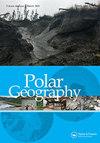“我认为这是北方最难对付的动物”:加拿大西北地区猎人和捕兽者与狼獾的互动
IF 1.6
Q3 GEOGRAPHY, PHYSICAL
引用次数: 7
摘要
狼獾(Gulo Gulo)是一种食肉动物,西部种群为“特别关注”,东部种群为“濒危”,在加拿大有特殊的管理问题。因此,了解人类与狼獾的关系以及人类对这种食肉动物的看法变得非常重要。此外,在加拿大北部,狼獾的皮毛被采集,因此居住在该物种附近的猎人和捕兽者是关键的利益相关者。通过半结构化访谈和问卷调查,我们分析了加拿大西北地区Dene和msamutis猎人和诱捕者与狼獾的互动和感知。我们发现猎人和诱捕者对狼獾的生态和行为有全面的了解。与这个物种相关的价值观从对它们顽强的性格和力量的尊重,到将狼獾描述为骗子。强调狼獾顽皮天性的故事也很常见。Dene和msamutis猎人和诱捕者认识到狼獾在社会生态系统中的重要性,并观察到气候和人为引起的景观变化对狼獾栖息地和种群动态的累积影响。在与狼獾发生冲突的情况下,听取猎人和捕兽者的意见是获得更有洞察力的管理选择的一条途径。本文章由计算机程序翻译,如有差异,请以英文原文为准。
‘I think it is the toughest animal in the North’: human-wolverine interactions among hunters and trappers in the Canadian Northwest Territories
ABSTRACT The wolverine (Gulo gulo), a carnivore species of ‘Special Concern’ for its western population and ‘Endangered’ for its eastern population, is of special management concern in Canada. Hence understanding human-wolverine relationships and human perceptions toward this carnivore species has become important. Moreover, wolverines are harvested for fur in northern Canada, thus hunters and trappers who live in the vicinity with this species are key stakeholders. Using semi-structured interviews and questionnaires we analysed human-wolverine interactions and perceptions among Dene and Métis hunters and trappers in the Canadian Northwest Territories. We found that hunters and trappers had comprehensive knowledge about wolverine ecology and behavior. Values associated with this species ranged from respect for their tenacious character and strength, to describing the wolverine as a trickster. Stories emphasizing the wolverines’ mischievous nature were also common. Dene and Métis hunters and trappers acknowledge the importance of the wolverine in the socio-ecological system and have observed the cumulative impacts that climate and human-induced landscape change have had on wolverine habitat and population dynamics. Listening to hunters and trappers is one path towards more insightful management options in situations involving conflicts with wolverines.
求助全文
通过发布文献求助,成功后即可免费获取论文全文。
去求助
来源期刊

Polar Geography
GEOGRAPHY, PHYSICAL-
CiteScore
5.30
自引率
0.00%
发文量
13
期刊介绍:
Polar Geographyis a quarterly publication that offers a venue for scholarly research on the physical and human aspects of the Polar Regions. The journal seeks to address the component interplay of the natural systems, the complex historical, political, economic, cultural, diplomatic, and security issues, and the interchange amongst them. As such, the journal welcomes comparative approaches, critical scholarship, and alternative and disparate perspectives from around the globe. The journal offers scientists a venue for publishing longer papers such as might result from distillation of a thesis, or review papers that place in global context results from coordinated national and international efforts currently underway in both Polar Regions.
 求助内容:
求助内容: 应助结果提醒方式:
应助结果提醒方式:


